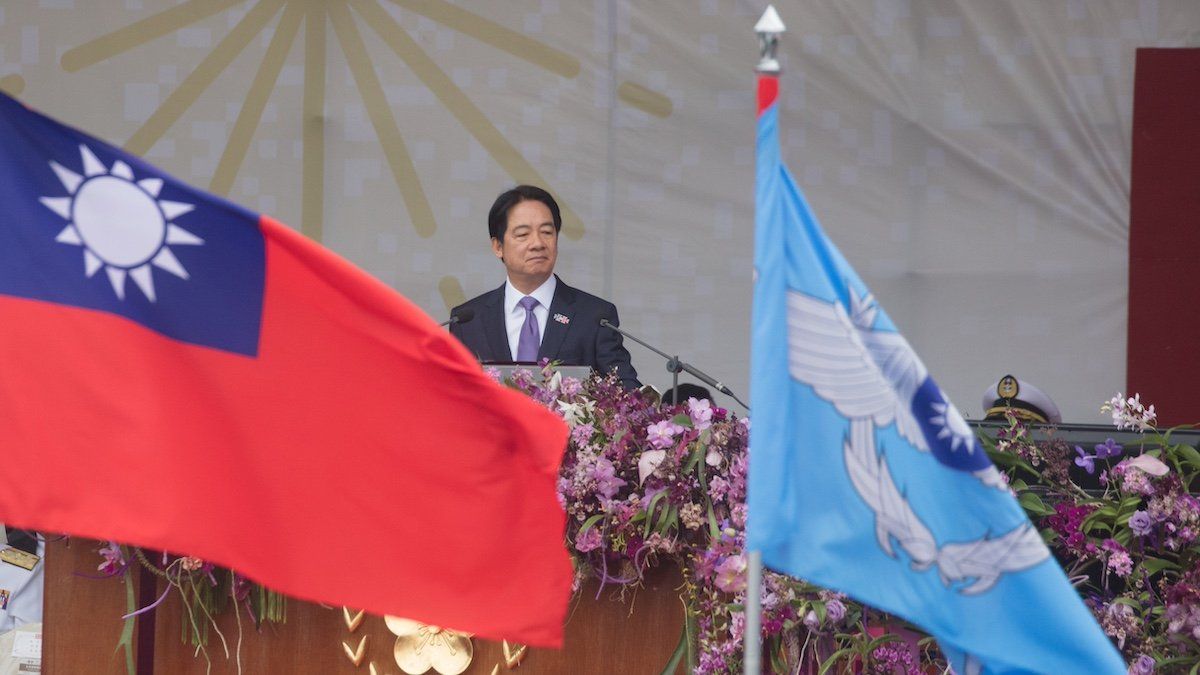Taiwanese President William Lai on Thursday took a shot at mainland China’s claims of sovereignty over self-governing Taiwan, saying, “The People’s Republic of China has no right to represent Taiwan.” The remarks, delivered in a closely watched speech marking the 113th anniversary of the revolution that founded the Republic of China (Taiwan’s formal name), won’t sit well with Beijing.
The People’s Republic of China maintains the so-called “One China” policy and sees democratic Taiwan as a rebellious province that will eventually be reunified with the mainland. The only question, from Beijing’s perspective, is whether that happens militarily or politically, and rhetoric like Lai’s seems to make the window for a peaceful resolution even smaller.
Chinese President Xi Jinping has reportedly ordered his military to be prepared to retake Taiwan by 2027, although that doesn’t mean he will actually attack that year. Some members of Taiwan’s opposition Kuomintang Party, including former President Ma Ying-jeou, worry that Lai is endangering Taiwan by antagonizing China.
In response to Lai’s speech, Taiwanese officials expect China to conduct military drills around the island — a demonstration large enough to show Beijing’s displeasure with Lai’s statements. However, China’s economic malaise is occupying much of the leadership’s focus, and the odds of seeing more provocative military measures are low.
